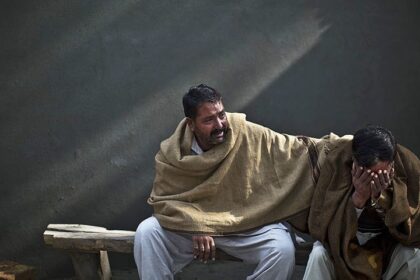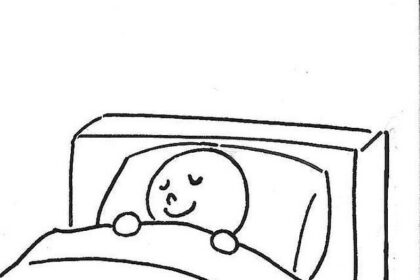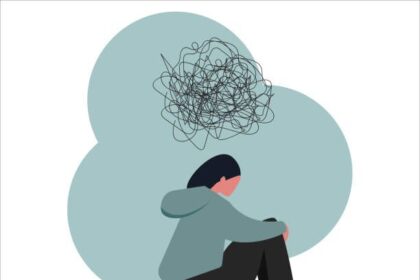Doctors in Pakistan: I was born into a house where both of my parents wear white coats. From the outside, that might sound like something out of a picture-perfect film: a clean clinic, proud patients, and an ever-smiling family dedicated to saving lives. But that’s the version people romanticise in dramas and movies. The reality, however, is very far from medicine being glamorous. In fact, it is very heavy, exhausting, and, in many ways, a really heartbreaking thing.
Growing up with doctors as parents made me see things from a very raw and unfiltered lens. I didn’t just witness surgeries or medical books stacked to the ceiling; I saw them struggling every day, day and night. I have seen them working more than their capacities, but still, what do they receive? Now this is the question that arises.
Doctors in Pakistan don’t just fight diseases; they fight a broken system every single day. They fight for their rights, for respect, and sometimes, for their lives.
Let’s begin with the most basic need, which is financial stability. You would think a profession as noble and demanding as medicine would offer that. But doctors in Pakistan, especially those who are working in the public sector, are paid shockingly low wages. I’ve observed numerous doctors in my vicinity juggling multiple jobs to meet their financial needs. Many young house officers, despite working brutal shifts, often go months without a single pay cheque. It’s not just demoralising — it’s inhumane.
There is some kind of silence that follows a doctor to their home after a 36-hour shift. It’s a bone-deep stillness that seeps into their eyes, voice, and presence. You can tell when it has taken a toll when meals go untouched, when conversations turn into nods only, and when sleep feels just like a luxury instead of a necessity. I have seen my parents leave before sunrise and return long after midnight, only to enjoy a few hours of rest before being called back. It is a life of constant urgency, where their time is not theirs and rest is borrowed, not earned. People see white coats and always and only assume prestige, but they don’t see the cost, the aching backs, the numb minds, the emotional fatigue of telling a mother her child did not make it, or holding back tears in front of strangers because there is no time to feel. Burnout is not just a buzzword. It’s the quiet, unspoken collapse of the people we trust to keep us alive.
And yet, even the lack of sleep isn’t the worst of it. Families of patients verbally and physically assault doctors in emergency rooms and crowded outpatient departments. At times, merely carrying out their duties with integrity and compassion can incite anger, prompting a whole mob to take action. In a recent case, a junior doctor was slapped for simply asking a patient to wait for their turn. Hospitals are supposed to be healing spaces, but for many doctors, they’re warzones — ones without protection or justice.
Practising medicine should not feel like patching up a sinking boat with bare hands, but that is often the reality. I have seen doctors walk into wards with peeling paint and broken fans, trying to steady their focus while everything around them screams neglect. The equipment? Sometimes the equipment is too old to be trusted, and other times it is completely absent. A doctor once told me how she stitched up a patient’s bleeding arm using the light from her phone because the power had gone out again. Another shared how a surgery had to be postponed because there was no oxygen left. Can you imagine that? Knowing what to do and how to save someone and still being helpless, and through all this, doctors are expected to perform miracles. It is not the lack of knowledge or will. It’s the absence of support. And yet, doctors keep showing up, doing what they can with what little they have. This is not due to the ease of their work, but rather because giving up would allow the system to triumph. They bear the burden of a dysfunctional system, striving to uphold dignity in environments that barely provide basic necessities. It is not a lack of skill or compassion; it’s a lack of infrastructure that crushes both.
Many young doctors are desperate to grow and to learn more, but the system gives them no room. Postgraduate training slots are very limited. Those who want to specialise often wait years or are forced to go abroad. Even during MBBS, the curriculum is so outdated and lacks exposure to modern techniques and technologies. Despite their talent, our doctors lack the necessary tools to excel.
Being a woman in medicine presents a unique set of challenges. The white coat does not always come with the same respect. I have witnessed numerous brilliant female doctors face questions, interruptions, or omissions not due to a lack of knowledge, but rather due to their appearance. In staff rooms and hospital corridors, they are asked when they plan to quit after marriage, how they will balance motherhood with night shifts, or whether they are “too soft” for surgery. Some are pushed into departments that are considered more “feminine”, not based on skill, but on outdated ideas. It is both physically and emotionally draining to continually have to demonstrate your worth, simply because you are a woman in a domain that was never intended to fully accommodate or support you. They heal patients with the same hands and stand just as long in operating rooms, yet they often walk a much harder road, one paved with bias, assumptions, and invisible ceilings. I have seen it happen to my relatives and to friends. It is a quiet tragedy, the systemic loss of talented women.
Given all these issues, it’s no surprise that thousands of Pakistani doctors are leaving the country every year. The UK, US, and Middle Eastern countries are filled with our doctors — doctors who wanted nothing more than to serve here but were driven away by low pay, harassment, lack of respect, and no future. Pakistan devotes years to training these individuals, only to see them depart for more dignified environments.
Despite everything, doctors in Pakistan are often villainised. People always say “Doctor tou paisay bana raha hai” as if they are running a business, not a life-saving profession. Even online on social media platforms, doctors are being bullied and mocked. Recently, I encountered a devastating case that profoundly affected me. Dr Arooba, a very passionate young doctor who has dedicated her life to serving people, was being bullied on online social media platforms. And for what? For helping her patients? For raising her voice? Spreading awareness on informative topics through her content? For being a woman in a leadership role? It was shocking, but sadly, not something surprising. The Internet is a very cruel place. While the Internet has the ability and power to spread awareness, it also facilitates the rapid spread of hatred. Dr Arooba was ridiculed, insulted, and emotionally targeted by those people who know nothing about her journey. Those who are unaware of the countless nights she spends at the hospital, the countless people she has helped, and the lives she has saved do not understand her journey. She is not just a doctor. She is an inspiration for many young girls across Pakistan, showing that you can be kind, competent, and confident in a field that often tries to break you. But even someone like her, who is doing everything right, still becomes a victim of social cruelty. What does that say about how we treat our doctors?
In all this chaos, one thing becomes glaringly clear: there is no real mental health support for doctors that exists. There are no trained counsellors available for doctors to seek help from. No safe spaces to say, “I’m not okay.” There isn’t even a space where one can breathe comfortably. And do you know what the worst part is? Stigma stops people from speaking up about their issues. People say things like, “Kya doctors ko bhi aisa mehsoos hota hai?” as if wearing a white coat somehow erases your right to feel. It’s as if people view doctors as machines, rather than as human beings with emotional vulnerabilities. But beneath that steady voice and tired smile, there is often someone silently falling apart. And no one ever asks them if they are okay or not. But the truth is, suicides among medical professionals are rising. They are breaking quietly, behind closed doors. No one sees it until it is too late.
Despite all of this, doctors keep showing up. Every doctor wakes up every morning and reports for duty. They treat patients who might not say, “thank you”. They work in buildings that are falling apart. They sit with grieving families and still offer hope, even when they feel hopeless themselves.
Why? They do this because they have sworn an oath. Even when the system fails to provide them with anything, they continue to provide everything.
Time for a Change:
Doctors are not asking for luxury.
They are asking for:
1- Timely, fair salaries
2- Safe work environments
3- Reasonable hours and rest
4- Respect and dignity
5- Mental health support
6- Security from violence
7- A culture of compassion
We cannot keep breaking our doctors and expect them to heal us. The white coat is not a shield from pain; it is a symbol of service. And service deserves respect.
If you have ever felt hope when a doctor entered the room, remember that feeling. They chose this path not for fame or money but to heal. They have stood by us through every crisis. It is time we stand by them. Doctors in Pakistan are more than just professionals; they are pillars of strength, resilience, and humanity in a system that barely supports them. It is high time we stopped romanticising their struggles and started recognising them and, more importantly, fixing them.















